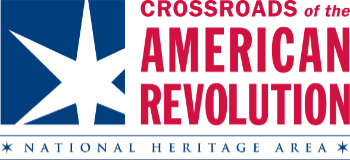Biography People
Jemima Condict Full Biography
I was born August 24, 1754, the third child of Daniel and Ruth Condict in Pleasantdale, Essex County. My father was a farmer who served as a deacon in the Newark Mountains church. I began a diary in the spring of 1772 when I was still seventeen years old and found an unused portion of my school exercise book useful for the purpose. Most of my diary entries concerned religious matters and sicknesses and deaths, but I was also very aware of the growing feelings of anger with Great Britain and the desire for independence.
On October 1, 1774 I commented that “It seams we have troublesome times a Coming for there is great Disturbance a Broad in the earth & they say it is tea that caused it. So then if they will Quarel about such a trifling thing as that What must we expect But war & I think or at least fear it will be so.” By 1775 my father was a member of the militia and I noted a Monday, which we called a Training Day, when I rode down with my father to see the men train. Several companies met together and it worried me they might have to fight in earnest. I believed it might be soon because I had heard people say that, “All hopes of Conciliation Between Briten & her Colonies are at an end for Both the king & his Parliament have announced our Destruction, fleet and armies are Prepareing with utmost diligence for that Purpose.”
On April 23 I noted that, “As every Day Brings New Troubles So this Day Brings News that yesterday very early in the morning They Began to fight at Boston, the regulers We hear Shot first there; they killd 30 of our men A hundred & 50 of the Regulors.”
Things continued to look grim but the men were not called out until 1776. In March, my future husband, Aaron Harrison, volunteered to go with a militia company to Long Island to put up breast works and fortifications. A few weeks later I wrote in my diary on May 1 that, “This day I think is a Day of mourning” because we received word the British fleet was coming to New York and the men met to decide what measures to take. I wrote that, “they have Chose men to act for them & I hope the Lord will Give them Wisedom to Conduct wisely & Prudently In all matters.” Most of the autumn, Aaron was at Elizabethtown and vicinity guarding against the British forces on Staten Island. With tension building during the summer, I wrote on August 4 that our preacher, Mr. Chapman, preached a farewell sermon and went off to join the army as a chaplain. Some of our neighbors were with the army at New York and on August 16 we learned that Jared Freeman was taken sick there. He was brought home and died soon after.
As winter approached, in November I found myself entering a long string of deaths of family and friends in my diary. The war was not going well and I found myself writing, “Well my Dear friends Wat (what) a time is this! A Sickly time & a very Dicing time & the People fleeing before there enemies.” One of the people fleeing the British army as it marched across our state was Aaron. As 1777 began, the militia worked hard preventing the British from foraging for food for their army at New Brunswick. Finally, in June the British soldiers went back to Staten Island and New York. We were still not safe and on September 12, 1777 I noted a militia alarm because the British had come over to Elizabethtown and had a skirmish with our militia after which they marched “Quietly up to Newark; & took all the Cattle they Could.” Aaron was at that Elizabethtown skirmish and one of our neighbors was killed. The British also fought with our militia at Newark and several people known to us were killed or taken prisoner.
We continued to have problems with the Green Coats and in December 1778 our militia captured three and also sighted one known to us over on Staten Island. So a group of our militia went over and captured him. They took him immediately to Newark where he was kept in close confinement.
I stopped writing in my diary in the spring of 1779, not long before I married Aaron. My marriage was short, though, because I died giving birth to our son, Ira, on November 14, 1779. I was buried in the church cemetery where the First Presbyterian Church of Orange now stands. It was between two and three miles from our home. Aaron continued in the militia throughout the war.
FURTHER SOURCES
Condict, Jemima. Jemima Condict, Her Book: Being a transcript of the diary of an Essex County maid during the Revolutionary War. (Newark: The Carteret Book Club, 1930) Available online at:http://sites.bergen.org/ourstory/Resources/Colonial_Life/Templates/diary_transcript.pdf
NARA M804. Revolutionary War pension and bounty-land-warrant application files [microform] 2670 microfilm reels; 35 mm. Washington: National Archives and Records Service, General Services Administration, 1974. Aaron Harrison Pension File S1010. Also available online at www.Fold3.com.
